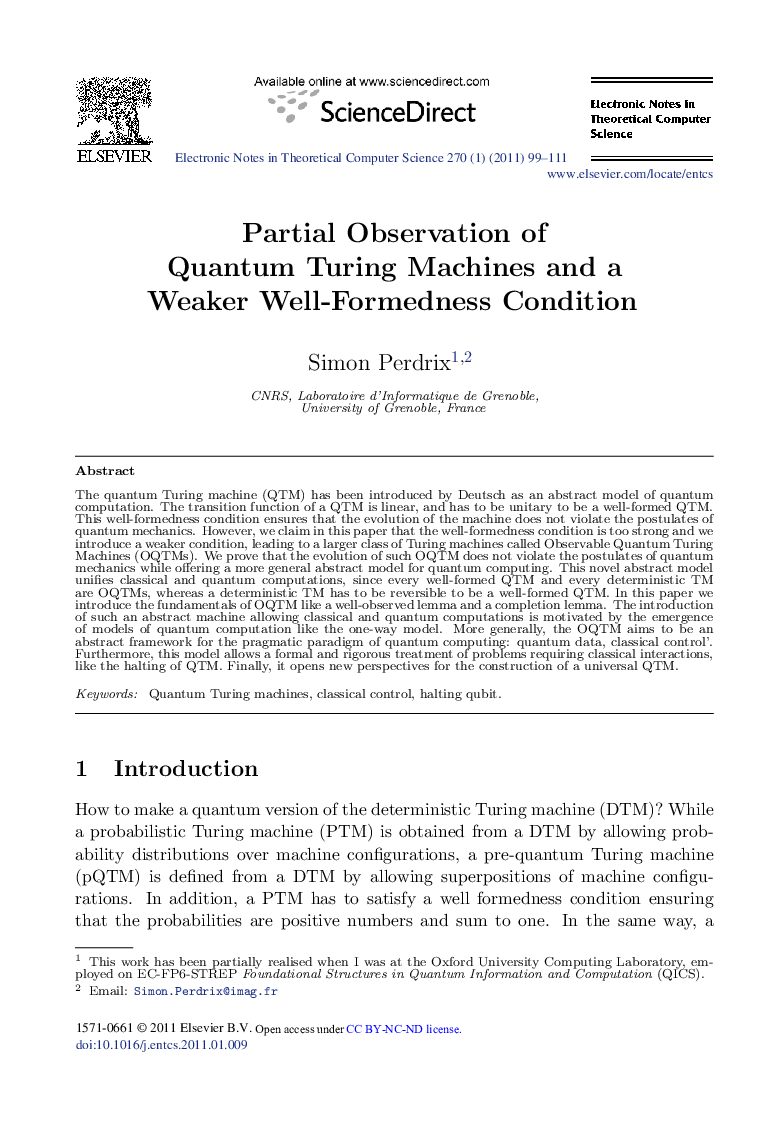| Article ID | Journal | Published Year | Pages | File Type |
|---|---|---|---|---|
| 423207 | Electronic Notes in Theoretical Computer Science | 2011 | 13 Pages |
The quantum Turing machine (QTM) has been introduced by Deutsch as an abstract model of quantum computation. The transition function of a QTM is linear, and has to be unitary to be a well-formed QTM. This well-formedness condition ensures that the evolution of the machine does not violate the postulates of quantum mechanics. However, we claim in this paper that the well-formedness condition is too strong and we introduce a weaker condition, leading to a larger class of Turing machines called Observable Quantum Turing Machines (OQTMs). We prove that the evolution of such OQTM does not violate the postulates of quantum mechanics while offering a more general abstract model for quantum computing. This novel abstract model unifies classical and quantum computations, since every well-formed QTM and every deterministic TM are OQTMs, whereas a deterministic TM has to be reversible to be a well-formed QTM. In this paper we introduce the fundamentals of OQTM like a well-observed lemma and a completion lemma. The introduction of such an abstract machine allowing classical and quantum computations is motivated by the emergence of models of quantum computation like the one-way model. More generally, the OQTM aims to be an abstract framework for the pragmatic paradigm of quantum computing: quantum data, classical control'. Furthermore, this model allows a formal and rigorous treatment of problems requiring classical interactions, like the halting of QTM. Finally, it opens new perspectives for the construction of a universal QTM.
